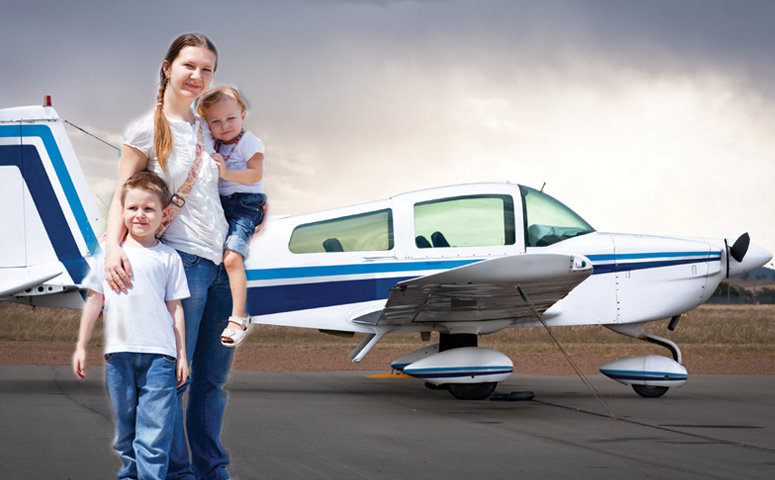What Earth Day Means to Global Aerospace
Earth Day is an annual event celebrated worldwide on April 22 since 1970. The commemoration highlights the importance of preserving natural resources and protecting our planet.
Over 190 countries with more than 1 billion in population recognize Earth Day. With environmental concerns rising, the importance of taking care of our planet is more crucial now than ever.

Aircraft Wreckage Recovery: An Essential Aspect of Environmental Responsibility
Aircraft wreckage disposal may not be something most people think about, but it is a crucial aspect of aviation operations. It is also a concern that Global Aerospace and our insureds take very seriously.
When an aircraft is involved in an incident, the wreckage must be recovered, disposed of properly, and in an environmentally friendly way. The process starts with locating, carefully recovering and removing debris from the site after an accident. The wreckage is transported to a secure location, where it can be sorted and processed.
The process of inventorying the wreckage is important, as it allows for the recovery of personal effects and any parts or materials that may be reused or disposed of following environmental best practices. Typically, wreckage is inspected by authorities at the site and at the secure storage location. It is then released for further processing or disposal.
In all aspects of wreckage handling—at the accident site, during transportation and storage, and ultimately in the sale or disposal of components—care must be taken to comply with all state and federal environmental laws. Therefore, we recommend seeking guidance from experts including legal counsel.
Vital Wreckage Management Considerations
There are several critical considerations throughout the wreckage management process, including:
- As the NTSB directs the recovery and disposition of the wreckage through their investigation, the contractors performing that work are doing so in compliance with environmental regulations (if any of the recovered wreckage is to be immediately disposed of) and DOT regulations for the transportation of the hull to a storage location.
- When storing the wreckage at a recovery firm’s facility or other rented space, the aircraft wreckage is sheltered in a manner that is secure and minimizes the potential for the escape of harmful materials to the environment. This includes fluids or metal components, the release of which could give rise to cleanup obligations.
- Finally, when the wreckage is ready for disposal, it should be disposed of properly, with the insurance provider and disposal entity(ies) made aware of the protocol to be undertaken. Some aircraft components have the potential to be classified as “hazardous waste” under environmental law, and that classification triggers specific management and disposal obligations. In disposing of aircraft, the wreckage must be recycled or discarded in accordance with applicable regulations.
Service Provider Requirements
If aircraft wreckage must be disposed of after an accident, the service provider should do the following:
- Generate a Waste Manifest for both solid and hazardous waste.
- Remove substances like fuel, oil and hydraulic fluid.
- Remove batteries, oxygen generators, tritium signs, avionics, cargo, etc.
- Manage the transportation and disposal of the hull.
- Gather salvageable components that can be reused.
- Transport and safely store or properly discard any waste.
On Earth Day… and Every Day
As an aviation stakeholder, you should work with an insurance provider that has these attributes:
- They invest in “green” initiatives of all kinds, including wreckage recovery and disposal.
- They have relationships with aircraft wreckage recovery, transportation, storage and disposal service providers that use environmental best practices while completing work in an efficient and practical manner.
- They provide property damage liability insurance, which can be applicable to environmental cleanup and restoration efforts.
- They continually learn about the best ways to handle wreckage in different environments and jurisdictions.
At Global Aerospace, we partner with insureds and service providers to achieve effective wreckage recovery outcomes focused on minimizing the environmental impact and maximizing protection of our planet.




